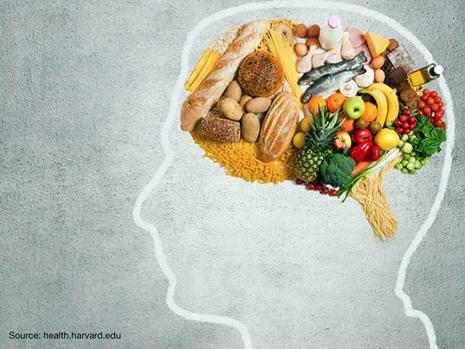Learn about brain health and nootropics to boost brain function
Is your exam care package brain food?


It’s exam time: The dreaded half of the semester for all matriculants and university students. It’s the time of year when all that matters are results, results and more results, and the several stages of revision (when you're not procrastinating).
A common mistake many make during this crucial period is to eat poorly and unhealthily. Exam care packages have been trending on Twitter, with students posting study snacks gifted to them by their significant others.
I’ve noticed in particular, that junk food, lots of chocolate, energy drinks and crisps are often eaten in place of normal meals to “keep energy levels up”. However, this is not only harmful to your long-term health, but can also negatively affect your exam performance.
The question: Most experts agree that sugar is rightfully demonized for causing a host of health woes that extend well beyond the obesity epidemic.
But sugar, especially taken in moderation, has its defenders, who argue that it's actually the brain's preferred fuel source - a natural reward system devised by Mother Nature to help you get things done.
Some studies have concluded that drinking a glass of something sweet provides a temporary brain boost. Have too much, though, and memory can be impaired - along with the rest of you. Go easy on the added sugar, as it has been linked to heart disease and other conditions.
Here are some brain food suggestions to ensure you're at your best during exam season.

Caffeine
There's no magic bullet to boost IQ or make you smarter - but certain substances, like caffeine, can energize you and help you concentrate.
Found in coffee, chocolate, energy drinks, and some medications, caffeine gives you that unmistakable wake-up buzz, though the effects are short-term. And more is often less: Overdo it on caffeine and it can make you jittery and uncomfortable.

Dark leafy greens
Kale, chard, spinach, broccoli: the list of healthy dark leafy greens is a long one, and they're a vital source of vitamins in the run-up to exams. All dark greens are packed with vitamin K, which helps build pathways in the brain, as well as naturally occurring nitrates and antioxidants.
You'll also get a healthy amount of B6 and B12 from some of these vegetables, which are associated with improvements in alertness and memory.

Fish
Salmon, sardines and mackerel are among the healthiest types of fish, as they contain lots of protein and omega 3, which is essential to keeping a functioning brain working well.
Herring and trout are other possible options, but the simplest (and cheapest) meal for students is probably sardines on toast. Choose whole-wheat bread and you'll have a healthy, long-lasting meal, combining complex carbohydrates, vitamins and protein.

Eggs
Salmon, sardines and mackerel are among the healthiest types of fish, as they contain lots of protein and omega 3, which is essential to keeping a functioning brain working well. Herring and trout are other possible options, but the simplest (and cheapest) meal for students is probably sardines on toast.
Choose whole-wheat bread and you'll have a healthy, long-lasting meal, combining complex carbohydrates, vitamins and protein.
Click here to view full article